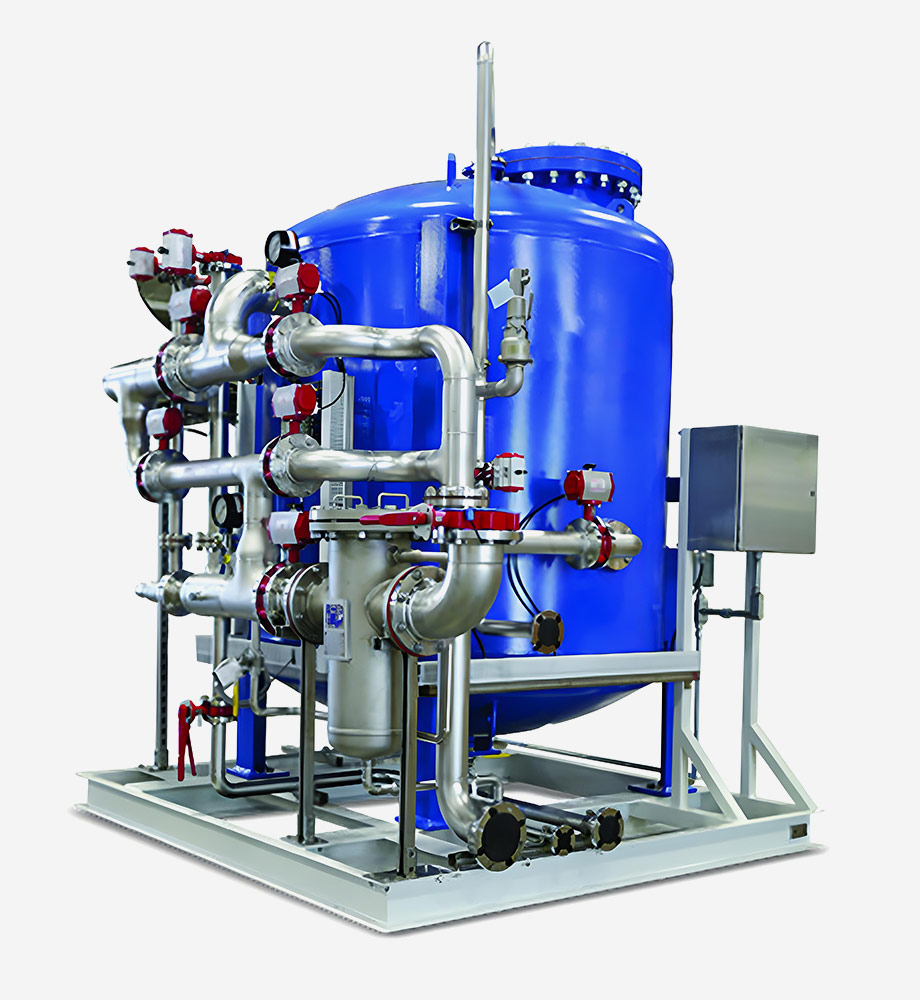Key Features
- Corrosion-Proof FRP Shell: Fiberglass laminate (often vinylester) resists chemical attack.
- Tangential Inlets & Distributors: Promote uniform flow through the resin bed.
- Removable Nozzles: FRP or plastic distributors at bottom prevent resin loss.
- Multiple Configurations: Single-tower softener, mixed-bed demineralizer, multistage systems.
- Lightweight Structure: Easier to ship and install than all-metal tanks.
Benefits
- Long Service Life: No pit corrosion from salt regeneration (unlike steel).
- Purity: Non-metallic components prevent ion bleed into treated water.
- Efficiency: Even flow ensures full utilization of resin capacity.
- Flexibility: Can be lined or jacketed if needed for extreme conditions.
Applications
- Water Softening: Removal of Ca²⁺/Mg²⁺ using Na-form resins (in boilers, cooling systems).
- Demineralization: Two-bed or mixed-bed systems for ultrapure water (pharma, power plant).
- Continuous Deionization (CDI/EDI): The FRP vessels house electrodeionization modules.
- Process Water Treatment: Food & beverage, microelectronics, or boiler feed water polishing.
Technical Specifications
- Sizes: Common diameters 150 mm–1200 mm, heights 1–4 meters.
- Pressure/Temp: Often atmospheric to ~4 bar; temps up to 50–60°C.
- Material: FRP body (vinylester epoxy), EPDM seals.
- Compliance: Many meet NSF-61 for potable reuse.
Unique Selling Points
- Chemical Durability: Withstands aggressive regenerants, outperforming carbon steel tanks.
- Custom Layouts: Tanks can be tandem (dual tower) or duplex, and fitted with automation valves.
- Reduced Downtime: Modular FRP units can be replaced or upgraded easily in plant.
- Full Support: In-house distributor design ensures minimal headloss and efficient backwash.

